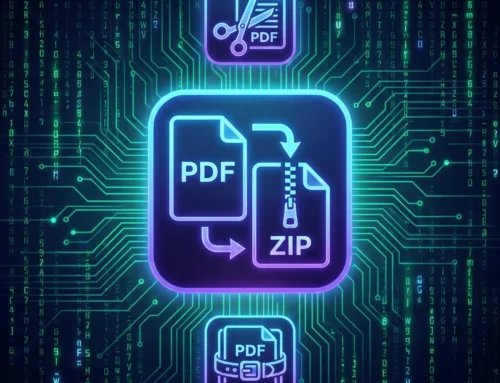
Approx. read time: 4.3 min.
Post: How Lower-Priced Chinese Electric Vehicles Threaten to Eclipse Established Car Manufacturers
How Lower-Priced Chinese Electric Vehicles Threaten to Eclipse Established Car Manufacturers. How Lower-Priced Chinese Electric Vehicles Threaten to Eclipse Established Car Manufacturers. The ongoing skepticism in the media regarding electric vehicles (EVs) persists, highlighted by Mercedes-Benz’s recent step back from its 2030 all-electric sales pledge. Ford also postponed its $12 billion electrification investment, reduced production of the F-150 Lightning in December 2023, and recently scaled down its EV initiatives further. This has led some to question the viability of EVs. However, this could be a strategic misstep for traditional car manufacturers as Chinese EV makers are entering the market with vehicles of comparable or superior quality at lower prices, with a primary focus on electric technology. Observers of the EV sector have identified a central issue: EVs remain significantly more expensive than their internal combustion engine (ICE) counterparts, a concern amplified by the current cost-of-living crisis. Legacy automakers have mostly aimed for the higher-end market, particularly SUVs, hoping to offset electrification costs through the higher profit margins of these expensive models.
How China’s BYD Overtook Tesla
Another challenge has been the limited selection in the secondhand EV market, though this was anticipated and is beginning to improve. In the UK, for instance, 2023 saw 1,903,054 new car sales compared to 7,242,692 used cars sold. The surge in EV offerings really began in 2019 with the arrival of models like the Tesla Model 3 and Jaguar i-Pace, expanding significantly in 2020. However, it wasn’t until 2021/2022 that a substantial volume of EVs was sold, a delay exacerbated by COVID-19 and chip shortages.
With many people buying cars on three- or four-year leases, the secondhand EV market is just now beginning to see a good supply, although these vehicles are still pricier than their ICE equivalents. For example, a 2021 Volkswagen Golf in the UK might cost between £10,000-11,000 ($12,500-14,000), whereas a comparable ID.3 could cost around £15,000 ($19,000), though likely with better features, as is often the case with EVs. Despite debates over the perceived rapid depreciation of EVs, affordable mainstream secondhand EVs are still on the horizon. In 2020, price parity between battery electric vehicles (BEVs) and ICE vehicles seemed imminent, with battery costs predicted to fall below $100 per kWh, the threshold for BEVs to become more cost-effective than ICE vehicles. However, battery prices fluctuated, reaching $161 per kWh in 2022 before dropping to $139 per kWh last year, diverging from earlier predictions due to economic disturbances post-2020. Bloomberg New Energy Finance (BNEF) now anticipates battery costs to hit $113 per kWh in 2025 and $80 per kWh by decade’s end. Lithium Iron Phosphate (LFP) batteries, less energy-dense but cheaper, are expected to reach $100 per kWh by 2025, and are already being used in an increasing number of vehicles, including Mercedes-Benz’s new eSprinter van.
How Lower-Priced Chinese Electric Vehicles Threaten to Eclipse Established Car Manufacturers
For the time being, high battery costs mean that BEVs continue to be marketed as premium products, lacking more affordable options. Even Tesla, which had the bestselling car globally in 2023 with its Model Y, has yet to launch the much-anticipated $25,000 car (potentially the Model 2) Elon Musk discussed in 2020, now expected to be delayed by at least two years. Traditional carmakers face even greater challenges in persuading customers to choose BEVs over ICE models. For example, Mercedes-Benz, despite offering efficient and modern-looking EVs, hasn’t seen strong sales. In the US, Mercedes sold 351,746 units in 2023, with EV sales increasing by 248% from 2022 but still only representing 15% of total sales, partly due to the cost disparity. In the UK, 22.5% of Mercedes sales were electric, outperforming other brands, but still trailing behind the competition.
European brands are preparing to introduce more affordable EVs, like the Dacia Spring and Volkswagen’s ID. 2all, but these won’t be available until at least 2025. This delay provides a significant opportunity for Chinese manufacturers like BYD, already surpassing Tesla in “new energy vehicle” production volume, to capture market share with competitively priced models. The BYD Dolphin and Qin, for example, offer competitive pricing and features in China, significantly undercutting Western prices. European market entrants like MG, ZEEKR, and XPENG offer luxury at more attractive prices, with some models even being produced in China to lower costs.
With Chinese batteries costing less than their American and European counterparts, even considering import duties, Chinese EVs could fill the affordable vehicle gap if Western automakers continue to lag in their EV strategies. The current slowdown in EV sales growth might not reflect a lack of interest but rather the prohibitive costs. If traditional automakers cannot or will not reduce their EV prices, Chinese companies are poised to capitalize on the growing demand for affordable electric vehicles.
Related Videos:
Related Posts:
The Toronto Comedy Show: Stand-Up Showcase(Opens in a new browser tab)










